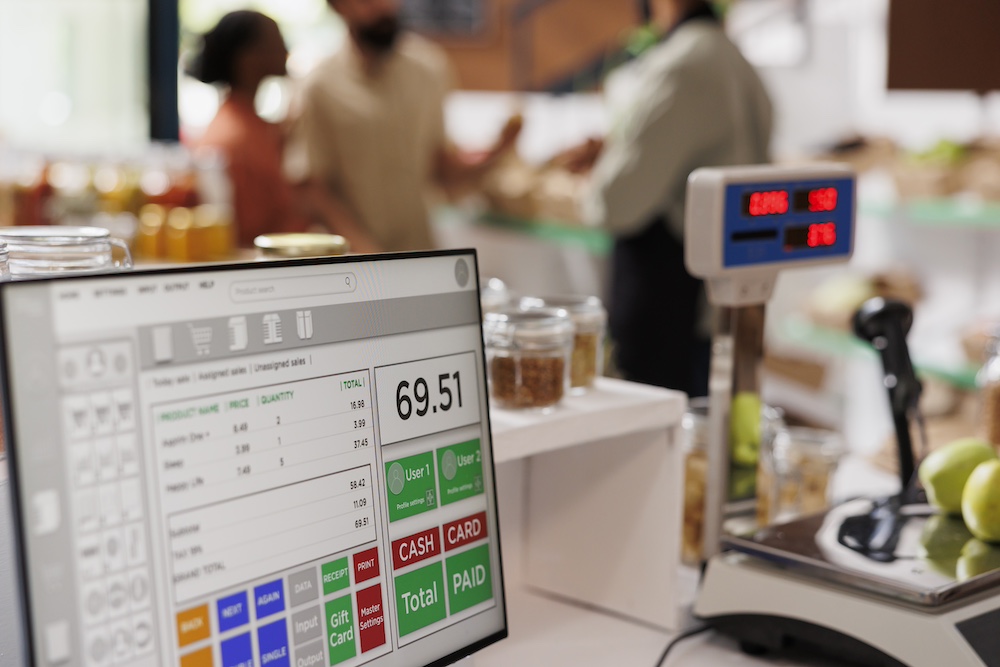
Why Retail Businesses Need ERP Software is no longer a question—it’s a strategic necessity in today’s fast-paced retail landscape. Retailers face rising competition, changing consumer behavior, and complex supply chains. Therefore, relying on outdated systems hurts growth.
By using ERP software, retail companies can unify operations, improve decision-making, and deliver exceptional customer experiences. Moreover, global trends show a surge in ERP adoption, as businesses aim for efficiency, scalability, and long-term profitability.
Retailers today cannot rely on outdated methods. Manual inventory tracking, disconnected systems, and delayed reporting hurt performance. Thus, ERP software enables real-time insights, automates key processes, and supports quick decision-making.
Moreover, global trends show massive ERP adoption. According to Statista, the ERP market could reach $100.7 billion by 2025. This growth indicates a clear shift—businesses are investing in tech to drive operational efficiency and customer satisfaction.
Increasing Complexity in Retail Operations
Retail is no longer just about selling products. It involves managing warehouses, online orders, returns, vendors, and customer engagement. Without integration, teams work in silos, causing delays and miscommunication.
For instance, if stock data isn’t synced, over-selling or under-stocking may happen. As a result, customer trust and revenue drop. Here, ERP tools unify departments and ensure everyone works from the same accurate data.
Additionally, multi-channel selling demands real-time inventory visibility. Retailers need to track inventory across outlets, warehouses, and e-commerce platforms. With an ERP system, these complexities are reduced, enabling faster deliveries and smoother customer experiences.
ERP Software: Centralizing Retail Data
Centralized data is vital. Many retail businesses struggle with fragmented software or Excel sheets across departments. However, with ERP software, finance, inventory, and sales data all reside in one place.
Consequently, this allows for faster reporting, accurate forecasting, and reduced duplication of efforts. Retail managers can make timely decisions using unified dashboards and live analytics.
In fact, a report by Panorama Consulting showed 95% of businesses saw process improvement after implementing ERP systems. Clearly, the benefits are not theoretical—they are proven in real business settings.
Managing Supply Chain and Vendors Efficiently
Retail businesses work with various suppliers and vendors. Coordinating them is time-consuming and error-prone without a unified system. But with ERP software, procurement, pricing, and deliveries are synchronized.
Retailers can automate reordering when stock is low. Moreover, they can compare vendor performance and adjust accordingly. This leads to more reliable suppliers and fewer delays or stockouts.
Additionally, automated invoice matching ensures accurate payments and financial control. Therefore, ERP tools help reduce procurement risks significantly.
Enhancing Customer Experience
Modern customers expect fast, personalized service. They want quick deliveries, real-time stock availability, and seamless returns. So, ERP systems integrate CRM, inventory, and logistics to enable this seamless service.
For example, sales associates can check stock from other outlets instantly. Also, returns are processed faster, increasing loyalty. Therefore, by using ERP, retailers can better engage customers and enhance lifetime value.
Furthermore, ERP systems track customer preferences and purchase histories. This helps in crafting personalized offers and boosting conversions.
Scalability and Growth
As businesses grow, manual processes break down. New locations, products, and customer demands stretch existing systems. Therefore, ERP solutions support business growth by being scalable and modular.
Retailers can add new outlets or channels without rebuilding systems from scratch. This agility becomes a competitive advantage.
In addition, cloud-based ERP systems offer flexibility and lower upfront investment. This suits growing retail startups and franchises. With better visibility, leaders can plan expansion more confidently and reduce risks.
Cost Reduction and Efficiency
Although ERP investment seems large initially, the ROI is significant over time. It reduces wastage, duplication, and inefficiencies. Retailers save costs through automation, real-time monitoring, and smarter inventory management.
Moreover, ERP helps reduce human errors, stock losses, and late payments. Teams spend less time on manual tasks. As a result, staff can focus more on customers and core business activities.
A study by Aberdeen Group revealed businesses using ERP saw a 22% improvement in inventory turns. That means faster sales, less holding cost, and better cash flow.
Compliance and Financial Reporting
Retail involves tax regulations, discounts, promotions, and financial audits. Manual handling of these leads to mistakes and penalties. Enterprise resource planning systems help manage compliance effortlessly through automation.
ERP tracks tax codes, generates reports, and ensures audit trails are complete. So, retail businesses avoid compliance issues easily. This accuracy builds investor confidence and simplifies financial planning for growth.
In addition, ERP dashboards provide real-time profit analysis, cash flow tracking, and cost optimization. Retailers gain a clear picture of performance and can adjust quickly.
Choosing the Right ERP Software
Not all ERP systems suit retail needs. Businesses must choose solutions that offer inventory, POS, logistics, and CRM modules. Also, it should integrate with their existing tools like payment gateways, marketplaces, or loyalty platforms.
Popular ERP providers include Odoo, SAP, Microsoft Dynamics, and Oracle. Many offer retail-focused features with great scalability. Among them, Odoo stands out for its modular design and affordable pricing for small to mid-sized businesses.
Partnering with experienced ERP consultants helps customize the system for your exact needs.
Proper training and change management also ensure successful adoption and long-term value.
Implementation Strategy for Retail ERP
Successful implementation begins with clear objectives. Retailers should define pain points, set goals, and map processes first. Then, choosing the right ERP vendor and timeline becomes easier.
Additionally, involving employees from early stages ensures smoother transition and adoption.
It’s also essential to test the system before full rollout to avoid disruptions.
Post-launch support and updates are crucial. So, retailers must partner with vendors offering long-term support and upgrades.
With these strategies, ERP implementation becomes a growth enabler, not a disruption.
Conclusion
Retailers face intense pressure to adapt and grow. Manual systems simply cannot handle today’s complexity and speed. Investing in ERP software enables retail businesses to streamline operations, improve customer experiences, and reduce costs.
Although change is challenging, the rewards are worth it. Real-time insights, automation, and scalability empower retailers to stay ahead. Now is the time to embrace ERP and unlock the full potential of your retail business.
